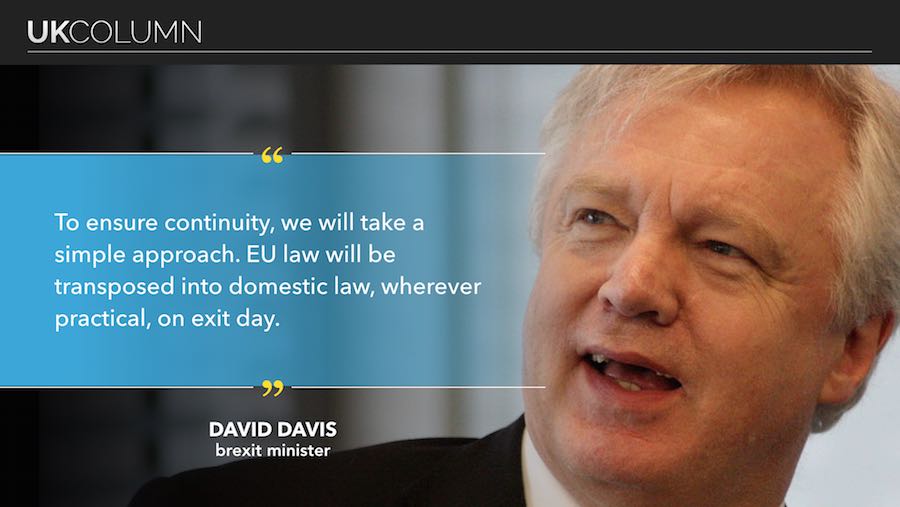
While Theresa May was making her announcement that Article 50 of the Lisbon Treaty would be invoked by the end of March 2017, David Davis was claiming that EU law would cease to apply in the UK. Is all as it seems?
“The UK is going to be a fully independent and sovereign country once again,” Mrs May said. “Brexit means Brexit, and we’re going to make a success of it … let me absolutely clear … there will be no unnecessary delays in invoking Article 50. We will invoke Article 50 when we are ready and we will be ready soon. We will invoke Article 50 no later than March next year.”
Announcing the “Great Repeal”, she said she would also remove the 1972 European Communities Act - the Act of Parliament which gives EU legislation superiority over that of the UK - from the statute books, thus silencing much of the criticism of the Article 50 approach.
Looking a little deeper, though, there is plenty to be concerned about. “No unnecessary delays” invoking Article 50 is how Mrs May described it, leaving plenty of scope for delay.
As for the repeal of the 1972 Act, David Davis, the Minister responsible for leaving the EU made the situation abundantly clear:
“It’s very simple. At the moment we leave, Britain must be back in control. And that means EU law must cease to apply.”
So far so good. But then the massive elephant in the room:
“To ensure continuity, we will take a simple approach. EU law will be transposed into domestic law, wherever practical, on exit day.”
EU law must cease to apply, except where it is simply “transposed” to UK legislation. This is a sleight of hand that Penn and Teller would be proud of. Davis went on to explain that it would be for UK politicians to “make the changes to reflect the outcome of our negotiation and our exit” - an untenable position bearing in mind the massive body of legislation which has been imposed on the UK since its entry into the EU.
In fact, looking closer at David Davis’ position, he makes it clear that most of the changes to newly transposed EU/UK legislation would come in the form of “secondary legislation”; opaque Statutory Instruments and Privy Council Orders which rarely, if ever, see the light of the media spotlight, never mind political oversight.
Prior to the EU referendum, David Cameron set out his vision for the future in a document called “The Best of Both Worlds”. The situation we find ourselves in under Theresa May’s leadership seems to be the “worst of all”.

